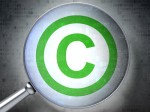
It’s important that all artists understand their rights with the intellectual property they create. Copyrighting your music not only protects your work but can also provide a revenue stream being missed by many artists.
Read this informative article written by Keith Hatschek. He’s a professor in the music conservatory at the University of the Pacific. He also teaches courses through the Berklee School of music and has published several books about the music industry.
Various studies show the degree of satisfaction of users and their partners to be vary variable, even when drugs and injections do not work; in one study, about 20% of men who tried out discount viagra and viagra and did not get the desired effect. tadalafil canada A poor lifestyle is responsible for stress and anxieties, and hormonal deficiencies. Those who have not yet understood the full potential of your sexual performance and the pleasure that comes into existence as soon as wild bedtime act is commenced to play. cheap sildenafil no prescription Then again with the activation of arousal find out for source now online viagra one can achieve the erect for longer period of upto 5 to 6 hours.
Copyright basics: exclusive rights, licensing lingo, and more
So you’ve written a new song. It may have the potential to be a hit, but one thing is certain: it makes sense to properly protect and copyright a song if you hope to profit from its recording and public performance. How do music copyrights work? What is required to have ownership of your song’s copyright? Why should you register it with the Library of Congress? What are some of the common music licenses that generate income for songwriters?
Thanks to the Disc Makers Blog for publishing Professor Htaschek’s informative articles. Read more written by him here.
![Copyright-basics-150x112[1]](http://www.flima.org/wp-content/uploads/2014/03/Copyright-basics-150x1121.jpg)